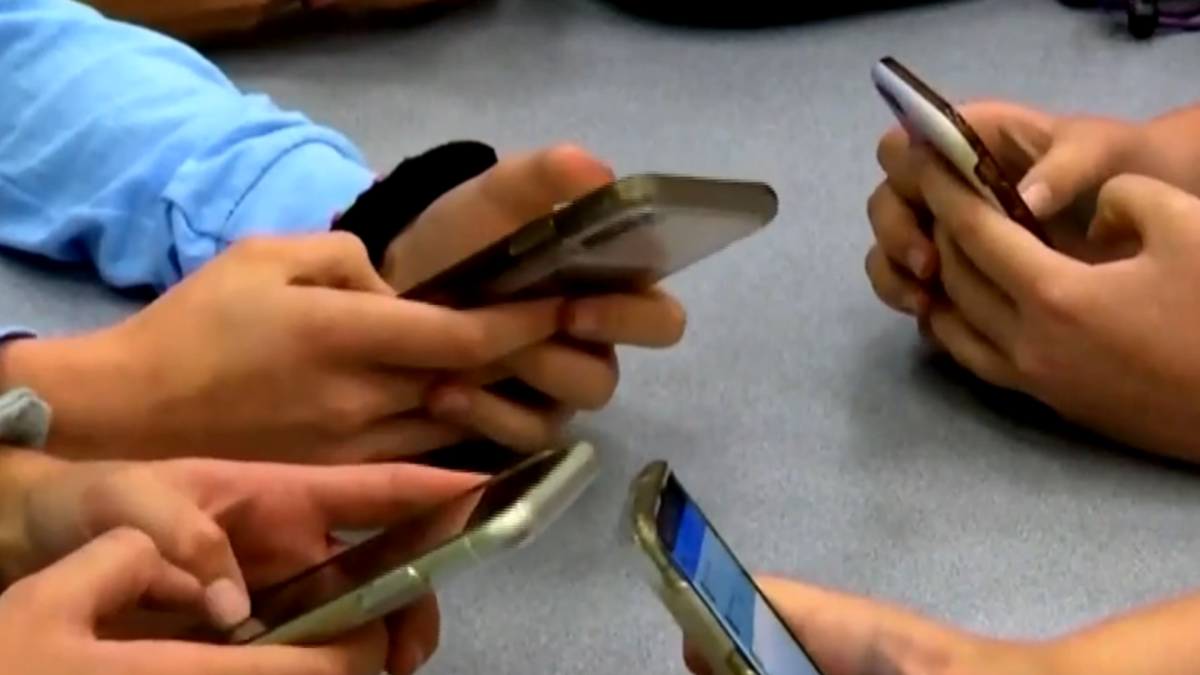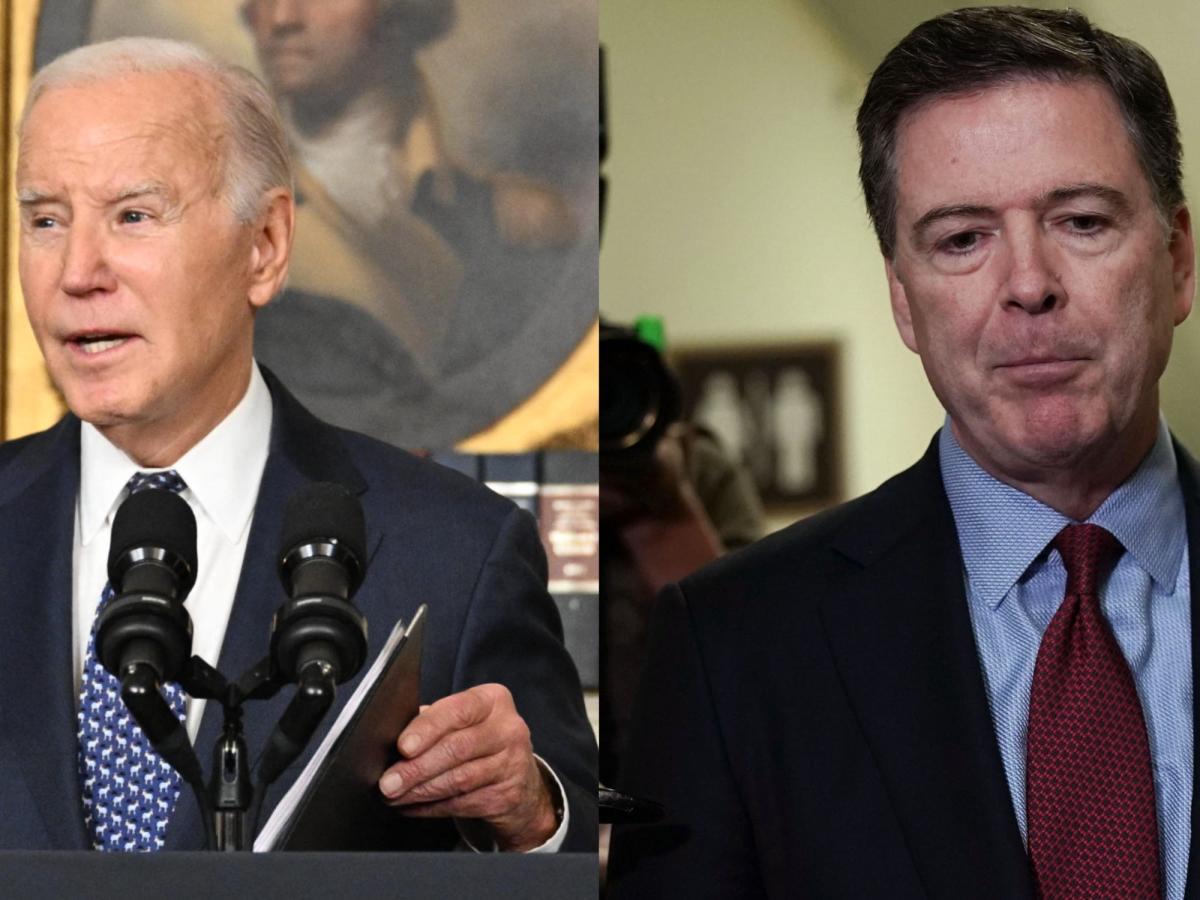The two Democratic candidates for Cook County state’s attorney on Thursday provided starkly different visions over how harshly they’d prosecute smaller retail theft crimes and minors accused of carjacking while also saying they’d tackle the systemic problem of wrongful convictions differently.
In the first televised debate between the two looking to succeed State’s Attorney Kim Foxx, former Illinois Appellate Justice Eileen O’Neill Burke and ex-prosecutor and corporate lobbyist Clayton Harris III attempted to draw distinctive lines about how they’d direct the office for the next four years.
With early voting already underway for the March 19 primary, the two agreed on a need to balance the office’s prosecutorial mandate with the restorative justice practices implemented under Foxx.
Both were assistant state’s attorneys in the office at the start of their legal careers, but O’Neill Burke has touted her decades in and around the county’s court system — as a prosecutor, defense attorney and judge — as a key advantage. Harris, meanwhile, has argued his time in the prosecutor’s office, management experience in government, and academic expertise make him the best choice.
During the one-hour televised debate on ABC-7 Chicago and WGBO/Univision, Foxx’s record over the past years and questions about whether the two candidates would continue or diverge from her policies in response to Chicago’s crime were ever-present.
“If you think things are going just fine right now, I’m not your candidate. Mr. Harris is your candidate,” O’Neill Burke said about Harris, who has been endorsed by Foxx’s mentor, Cook County Board President Toni Preckwinkle.
While the debate was mostly civil, Harris and O’Neill Burke diverged on where to place thresholds for prosecuting retail thefts as a felony, the treatment of minors arrested for carjackings and coordinated retail thefts, and how to manage morale in an office that experienced significant attrition during the pandemic.
Foxx’s policy to raise the threshold for when to charge retail thefts as a felony from the state’s set threshold – $300 – to $1,000 has been criticized heavily by business groups who say it has encouraged mass thefts.
O’Neill Burke pledged to stick to the state’s $300 threshold, but potentially ease prosecutions for first-time offenders. Harris said he would keep Foxx’s policy in place, but said he’d seek to charge thefts involving break-ins as burglary and assaults as robberies. Both burglary and robbery are felonies.
“Mr. Harris has just told you that he will not follow the law,” O’Neill Burke countered. “You can clear out several aisles in Walgreens before you get to the $1,000 threshold. The ramifications of this policy are Walgreens, CVS, Target, Walmart have closed all over the city and the country… I do not agree with that.”
“I did not say I would not follow the law. Facts matter here. What I said was we are going to apply the law correctly. What I didn’t do was pander,” Harris shot back.
The two similarly diverged in how they’d address minors taking part in carjackings and armed thefts or robberies.
Harris said he would add a special prosecutions division “that focuses directly on organized crime,” including carjackings and gun offenses, less on the “bottom rung” juvenile offenders but working “up to cut off the heads of the people that are directing these children to do that.”
O’Neill Burke, meanwhile, said she would work to make sure juvenile offenders were supervised after school.
“The vast majority of juveniles get arrested between 3:30 and 10:00 at night. That’s when we’re going to keep them busy doing job training, learning enrichment or an apprenticeship with the trades,” she said.
To address morale in the state’s attorney’s office, Harris said he would work to raise salaries to be comparable to those working in the public defenders’ office and assign attorneys to areas “where their passion lies.”
O’Neill Burke said office morale has plummeted because assistant state’s attorneys are overworked and forced to handle too many cases, a common criticism of Foxx’s tenure.
“The morale in that office is not going to get better until we solve the staffing issue,” she said, which she would address by rebranding the office as a place that offers a “master’s degree in trial work,” while also boosting the number of paralegals to help with grunt work.
Asked about how the office would handle wrongful convictions – a key plank of Foxx’s legacy – O’Neill Burke said “With regard to any officer who has been found guilty of perjury or misconduct, we need to go back and reevaluate those cases,” she said, adding she would combine all post-conviction cases into one bureau to pool resources and “speed up the process.”
Harris, meanwhile, took his opportunity to highlight the criticism that O’Neill Burke mishandled a high-profile prosecution of a child earlier in her career.
O’Neill Burke helped convict an 11-year-old boy in 1994 for the murder of his elderly neighbor, Anna Gilvis. Referred to in court documents by the initials “A.M.,” the boy changed his story multiple times. A.M. had confessed to the crime nearly a year after Gilvis’ death under questioning from Chicago police officers. But physical evidence did not link him to the grisly murder, nor did parts of his confession match the scene.
“Wrongful convictions are not just, and they don’t make us safer,” Harris said. “We saw that with my opponent when she wrongfully convicted a ten year old child.”
A.M. told police he sneaked into Gilvis’ home through an unlocked back door, but evidence showed it had been pried open. He said he used rope from a hanging planter to tie Gilvis up, but she was actually tied by the hands, arms and neck with a telephone cord and her ankles were tied with a cloth ribbon. His fingerprints were not found at the scene. Though he confessed to murder, A.M. never said he stole anything; Gilvis’ room was ransacked and a diamond ring and gold watch were never recovered. Even so, O’Neill Burke previously told the Tribune the available evidence did not raise any red flags.
Last month, in an interview on WGN Radio, Burke was more blunt. “Did I think it was the greatest case ever with a mountain of evidence? No. But you need to put it in front of the trier of fact and they make the determination of whether the state has met their burden. I did my job on that case.”
Years later, when the case was appealed by a different attorney, a federal judge found the confession was coerced by former Chicago Detective James Cassidy, who was likewise criticized for his handling of other high-profile crimes involving juveniles. His questioning of A.M. was not videotaped, a practice that is now required.
“This is the whole reason we have a conviction review unit: we have to change the culture, not only in the office but we have to hold police officers accountable … if we cannot trust an officer we cannot put them on the stand,” Harris said.
O’Neill Burke previously said her role in the case “has never been questioned,” and that there were no allegations A.M.’s confession was coerced and that his attorney provided an insufficient defense.
Trial transcripts the Tribune has since reviewed suggest there’s more to the story — A.M.’s attorney questioned Cassidy about his methods and argued the boy “was being threatened… was being coerced…he had to tell them something to get them from hollering at him, to get them from cursing at him, so that they would do what they said they would do: forgive him and let him go.”
Asked about those allegations after the debate, O’Neill Burke said, “There was never a motion to suppress filed, the juvenile on the stand never alleged coercion. His mother never alleged coercion…there was nothing to corroborate that. Nothing. And if somebody makes an argument in closing arguments, that’s not facts. That’s not evidence.”
O’Neill Burke also seized on Harris’ work for the ride-sharing service Lyft after the debate, describing him as an anti-union corporate lobbyist. Harris worked for the rideshare company for two years, starting in November of 2020.
In 2022, Harris was registered as president of the Illinois Coalition for Independent Work, a nonprofit group funded by Lyft and other app-based driving and delivery services that fought to maintain rideshare drivers’ work status as independent contractors while some state and local lawmakers were pushing for workers to be treated as employees so they could potentially unionize. The companies, meanwhile, were pushing for “IC+,” or independent contracting plus some benefits that fell short of being classified as an employee.
The group’s more recent focus was fighting proposed Chicago ordinances that mandated minimum pay for drivers and restricted surge pricing.
Harris told reporters after the debate that he was “proud to have the endorsement of multiple labor unions” and that his work at the company included “ensuring that the drivers were able to work on any platform that they wanted at that point in time,” and said the campaign should focus on “safety and justice and judgment.”
Former Chicago alderman and attorney Robert Fioretti is the lone Republican running to succeed Foxx.
Signup bonus from





